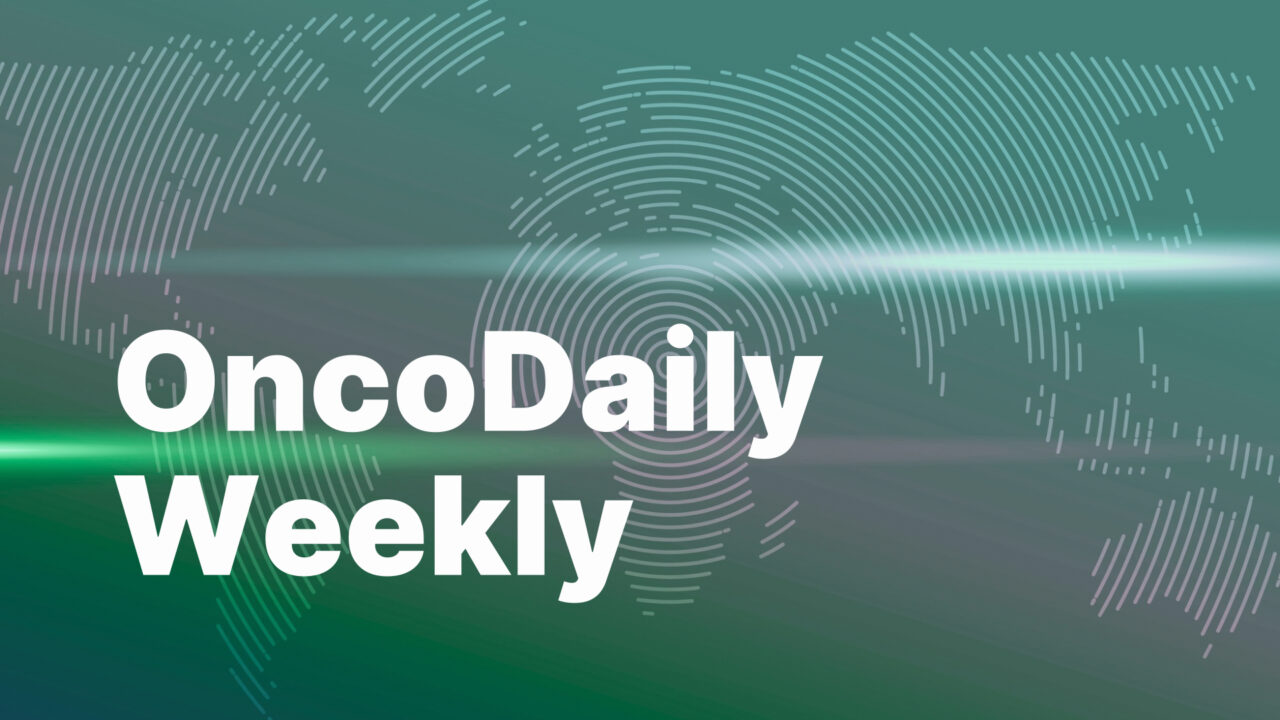Welcome to OncoDaily Weekly Updates, your comprehensive roundup of global oncology news, research breakthroughs, and inspiring milestones from November 10 to 16, 2025.
This week brought together advances in pediatric oncology, policy discussions, regulatory developments, and personal stories that did not miss from OncoDaily’s radar neither.
The FDA’s New Plausible Mechanism Pathway and Old Black Box Warnings
The Food & Drug Administration (FDA) has unveiled a novel regulatory route – the “Plausible Mechanism Pathway” – that allows approval of therapies without the traditional randomized-controlled trial requirement when the disease’s biology is well-understood (for example, a clear genetic defect) and the therapy directly targets that defect. For oncology this could be paving a way particularly in niche indications with no viable options – though how broadly this will apply beyond rare genetic settings remains to be seen.
Read the full article by Vinay Prasad and Martin A. Makary in NEJM, or the summary of the article by OncoDaily.
Changes within the FDA continue to make headlines as this week the FDA also announced the removal of the longstanding “black box” warnings for breast cancer from menopausal hormone therapy products.
“…We are announcing that the FDA is initiating action to remove the black box warnings of breast cancer, of cardiovascular disease, of possible dementia on estrogen products — all of them, systemic and local…
…There will still be a warning that if you are taking estrogen alone and you have a uterus, there’s an increased risk of endometrial hyperplasia, which can cause endometrial cancer. That’s why progesterone is recommended to go with estrogen if you still have a uterus,” said Makary.
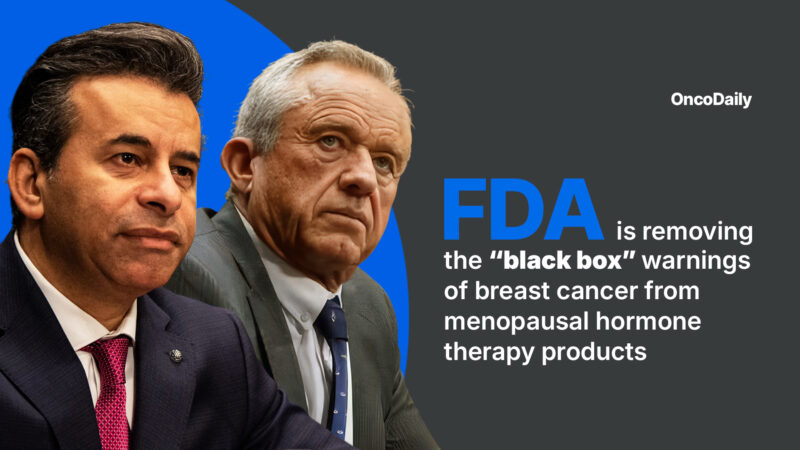
Continuing the regulatory storm, FDA approved ziftomenib for relapsed or refractory acute myeloid leukemia with a NPM1 mutation which was characterized as “a fantastic win” by an AML expert Amer Zeidan, Professor of Medicine, Chief of Hematologic Malignancies, Director of Heme Clinical Research at Yale University.
And while our team looked through the busy science and put together a list of
- 5 new drugs approved by the FDA in the first half of 2025 for gastrointestinal cancers by OncoDaily GI,
- 60+ Abstracts from ESMO Shaping Therapy Selection by Svetlana Nikic, Founder of Precision Oncology Consulting, that help guide clinical and diagnostic decision making, and
- 4 Emerging Trends in Oncology Clinical Drug Development by Tanja Obradovic, Senior Advisor of Oncology Drug Development at HopeAI, that reflect the accelerating pace of translational research and the future to come.
On the note of expectations, the U.S. oncology will likely see fast developments from Novartis, as Victor Bultó, President of Novartis US, announced a $23 billion investment in U.S. infrastructure, including a new manufacturing facility dedicated to radioligand therapy.
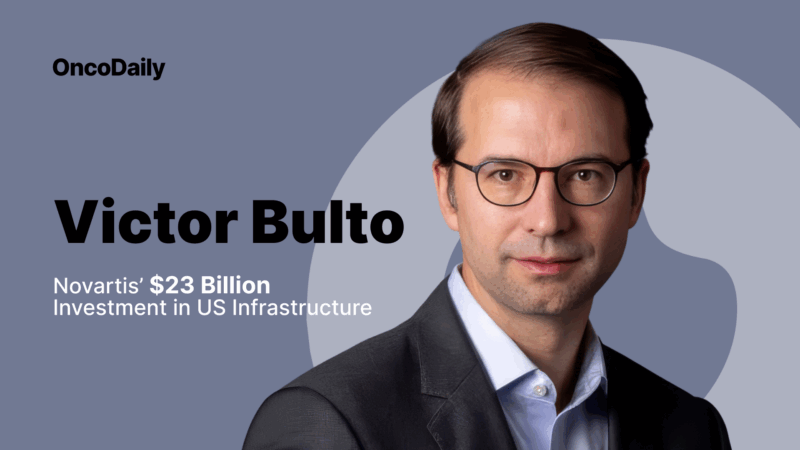
Excellence in Research Celebrated Worldwide
Where there are research and science there are celebrations and awards for practice changing contributions physicians and researchers have gifted the oncology community.
The King Hussein Cancer Research Award ceremony gathered the Arab oncology community in Amman, Jordan on 15 November to honor leading Arab scientists across multiple categories including:
- Laureate for Special Distinction in Research: Hagop M. Kantarjian (University of Texas MD Anderson)
- Lifetime Achievement Award – International Track: Mohamed Kharfan‑Dabaja (Mayo Clinic, Florida)
- Lifetime Achievement Award – Regional Track: Mohammad Abu Hilal (University of Jordan)
… tbc
The event was overseen by Prince Talal bin Muhammad (on behalf of King Abdullah II) and commented as the “realization of the Arab Dream For Cancer Research” by Princess Ghida Talal.
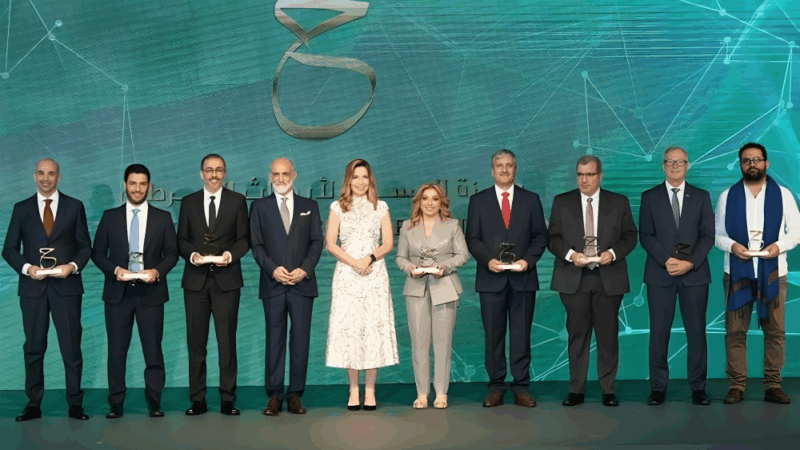
At the 17th International MPN Congress, Professor Ronald Hoffman, Albert A. and Vera G. List Professor of Medicine and the Director of the Myeloproliferative Disorders Research Program at the Icahn School of Medicine at Mount Sinai, received the 2025 Lifetime MPN Achievement Award, recognizing his transformative work in myeloproliferative neoplasms.
Cristiane D. Bergerot, Former Postdoc Fellow and Research Consultant at City of Hope, Director of the Department of Psycho-Oncology at CETTRO Cancer Research Hospital, received the IPOS Noemi Fisman Award at COSA-IPOS 2025, celebrating her contributions to psycho-oncology.
Radiation oncologists too had a major celebration as ESTRO announced a record number of abstract submissions for ESTRO 2026, a landmark event to be looking forward.
Finally, OncoDaily announced the last 10 of the “100 Influential Women in Oncology: Key Opinion Leaders to Follow on Social Media in 2025”, concluding the list of visionary women leaders in 2025. Stay tuned for the final article featuring all 100 women who strive to make cancer care better every day.
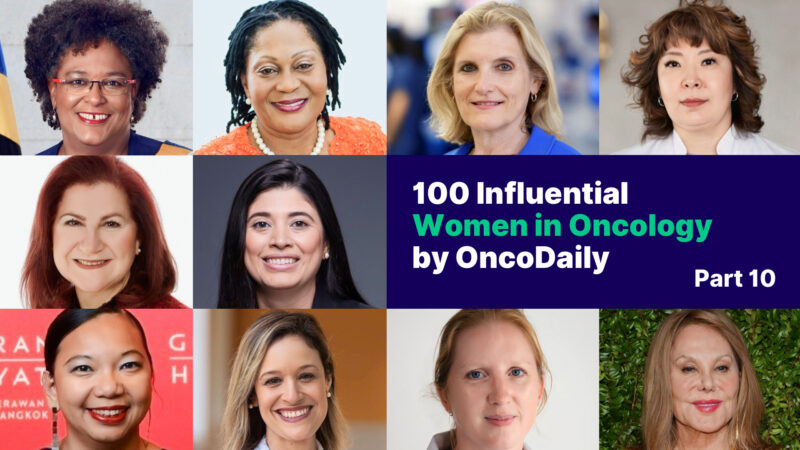
Global Health Continues to Pivot
Global Oncology Access: Vietnam Approves Russian Pembrolizumab
On November 13, Vietnam authorized the sale of Russian-manufactured pembrolizumab, opening a new chapter in cancer treatment access for the region. While this regulatory shift can be contagious as promises broader availability of a key immunotherapy across underserved populations the real-world outcomes are yet to be observed in comparison with the original Keytruda.
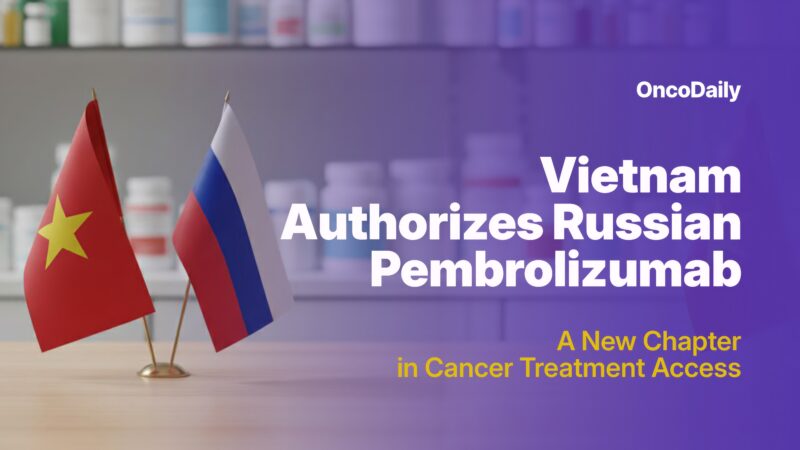
Europe, China, and the Pharmaceutical Supply Chain
A report prepared for the pharmaceutical association Pro Generika e. V. examined Germany’s and the European Union’s dependence on China for active pharmaceutical ingredients. The study raised critical questions about supply security, political leverage, and the future of R&D and manufacturing in Europe. Targeted at policymakers, the report provides concrete recommendations to ensure stable access to essential medicines and protect long-term public health interests.
Africa’s Promising Stream
The African Development Fund partnered with WHO to support Sudan’s health system. The agreed USD 55 million package to rebuild and strengthen Sudan’s health system over the next three years is one of the steps forward for African healthcare and medicine.
Meanwhile, African Leaders Unite to Launch the Hammamet Declaration on Oncogenetics, a landmark policy initiative in Africa, aiming to strengthen research, access, and infrastructure in genomic medicine across the continent.
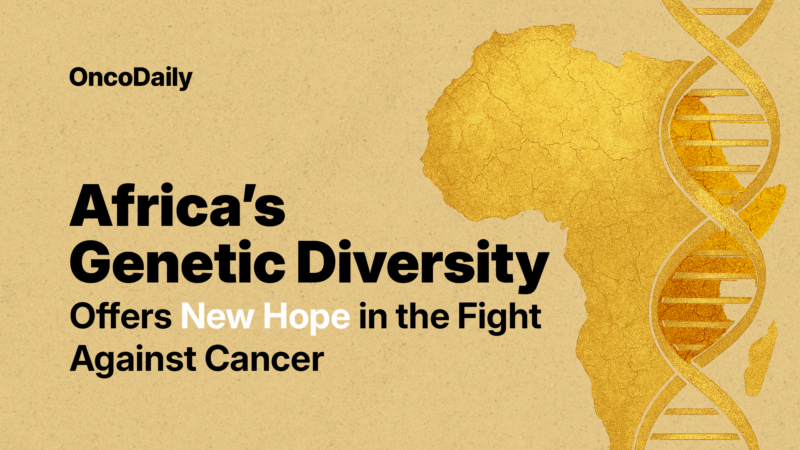
Mortality and Public Health: U.S. Cancer Outcomes in Perspective
The U.S. continues to trail peer high-income countries in life expectancy, despite spending more on health care per capita. A recent analysis from the Kaiser Family Foundation found that premature deaths (before age 70) in the U.S. occurred at nearly twice the rate of comparable nations.
Importantly for oncology, the U.S. actually performs relatively well in cancer outcomes, meaning that the life-expectancy gap is not driven by cancer but by higher mortality from chronic diseases, substance use, injuries and social health disparities.
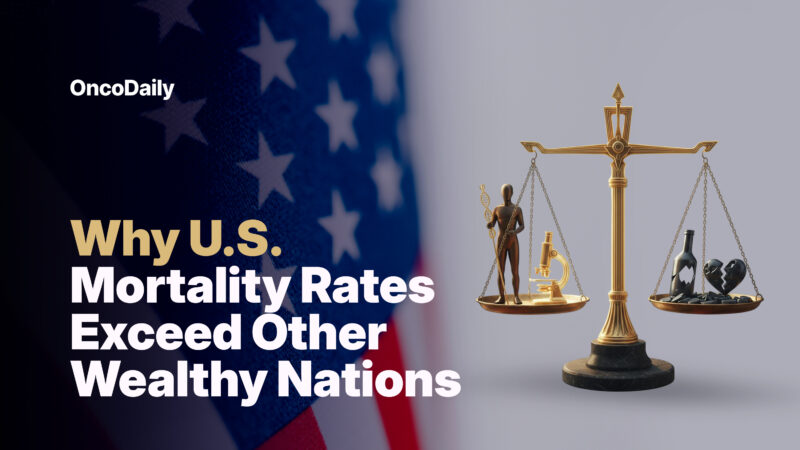
Amongst It All, What Do World Health Voices Say?
The second cover story of World Health Voices was published this week and features Professor Valentina Prevolnik Rupel, Minister of Health of Slovenia – a distinguished health economist and academic leader whose evidence-based approach and commitment to health system reform have made her one of Europe’s most respected voices in public health policy. In this conversation on World Health Voices, she reflects on the evolving challenges of healthcare systems, the role of solidarity and innovation in shaping sustainable health models, and Slovenia’s vision for a healthier, more equitable future.
“Healthcare must not depend on your income, where you live, or whether you once had cancer. Everyone deserves equal access – to care, to dignity, to life.” – she says.
“No One Should Be Left Behind” attitude is what is missing in today’s healthcare – a statement amplified by the host of the series – Prof Gevorg Tamamyan, Chairman and Professor of the Department of Hematology and Pediatric Oncology, Yerevan State Medical University and President of the SIOP Asia Continental Branch and POEM Group, who reflected on a moment of striking contrast of wealth and poverty:
“…We are failing – as a whole, as a global society, as humans. We have failed… Because what is the purpose of all this progress if we lose our humanity along the way? We are capable of incredible things. We can reach the moon, cure diseases, even talk to machines. But the greatest achievement of all would be learning to care for one another again.Because if we forget that – no invention, no progress, no intelligence, artificial or not – will ever save us.”
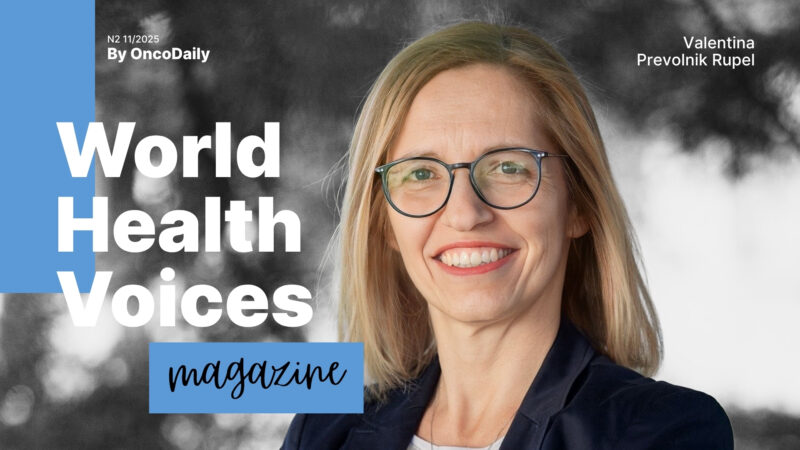
CancerWorld too is on the same page. In an interview with MEP Tilly Metz the magazine explored the perspective of political courage and Europe’s cancer policy. Metz emphasized the need for strong, evidence-driven leadership to ensure equitable cancer care across EU member states, highlighting ongoing efforts to integrate prevention, treatment, and survivorship into a cohesive European strategy.
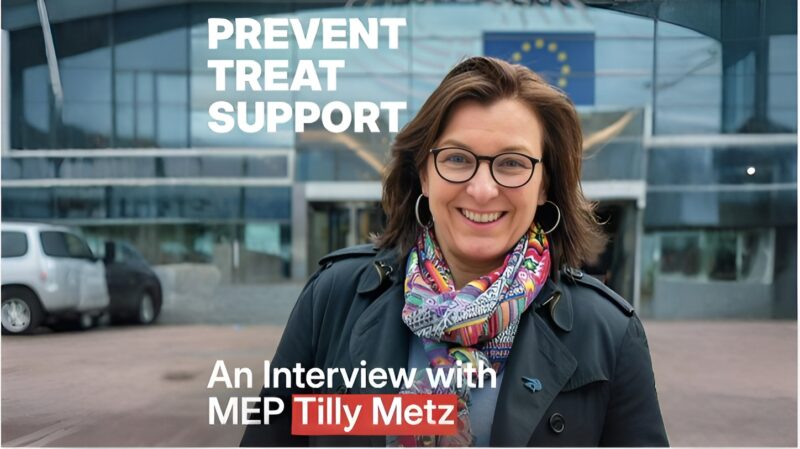
Last but not least, we conclude the week with a major announcement of Thomas L. Harrison, one of the most accomplished figures in global healthcare communications, joining the Board of Directors of P53 Inc., a U.S.-based innovator in medical media, scientific publishing, and research – proud home of OncoDaily™, OncoDaily TV, OncoDaily Medical Journal, CancerWorld Magazine, OncoDaily Magazine, OncoDaily IO, OncoDaily GI, Hemostasis Today, Fertility News, Boston Institute for Global Rankings (BIGR), Global Cancer Movement, Yvonne Award, OncoThon™, World Health Voices and VIRO.
Follow OncoDaily for daily news in oncology and healthcare. Until next week!
Written by Elen Baloyan, MD, Managing Editor of OncoDaily.


